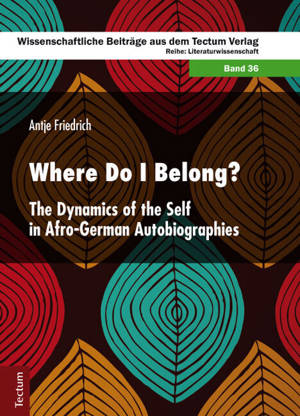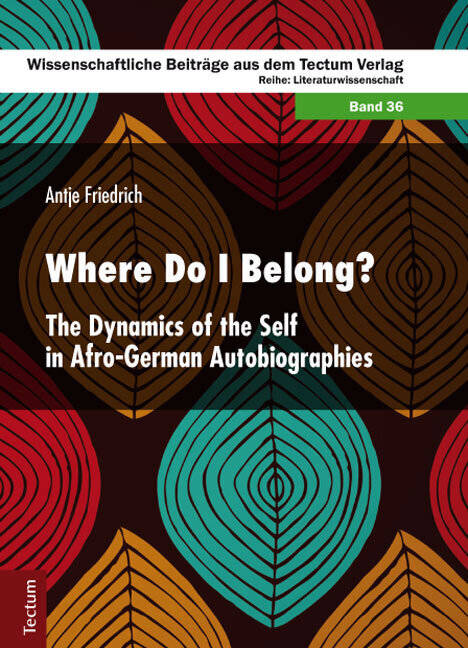
Bedankt voor het vertrouwen het afgelopen jaar! Om jou te bedanken bieden we GRATIS verzending (in België) aan op alles gedurende de hele maand januari.
- Afhalen na 1 uur in een winkel met voorraad
- In januari gratis thuislevering in België
- Ruim aanbod met 7 miljoen producten
Bedankt voor het vertrouwen het afgelopen jaar! Om jou te bedanken bieden we GRATIS verzending (in België) aan op alles gedurende de hele maand januari.
- Afhalen na 1 uur in een winkel met voorraad
- In januari gratis thuislevering in België
- Ruim aanbod met 7 miljoen producten
Zoeken
Where Do I Belong?
The Dynamics of the Self in Afro-German Autobiographies
Antje Friedrich
Hardcover | Engels, Duits | Wissenschaftliche Beiträge aus dem Tectum Verlag: Literaturwissenschaft | nr. 36
€ 40,45
+ 80 punten
Omschrijving
When asking white Germans about their knowledge about Afro-Germans, one usually gets nothing but a moment of silence as a reply. Is this silence trying to cover lack of knowledge, uncertainty or maybe both? Recent publications of Afro-German autobiographical narratives point to the fact that Afro-Germans have had to fight for their position in society ever since. But also the political circumstances resulting in a change of the social structures often aggravated the condition of the Afro-Germans when it came to living in Germany. Antje Friedrich focuses on five autobiographical narratives to balance the consideration between the formation of the self and the impact of the society on the individual in a convincing and traceable manner: Destined to Witness: Growing Up Black in Nazi Germany by Hans J. Massaquoi (1999), Daheim Unterwegs: Ein Deutsches Leben by Ika H gel-Marshall (1998), Die Farben unter Meiner Haut: Autobiographische Aufzeichnungen by Thomas Usleber (2002), 'Schokoladenkind: Meine Familie und Andere Wunder by Abini Z llner (2003) and D! Heimkind Neger Pionier: Mein Leben by Detlef Soost (2005). Friedrich seeks to highlight components of social life which constitute obstacles to the acceptance and integration of Afro-German people. Consequently, she refers to barriers that should be broken down on the way to an open-minded German society that accepts people regardless of their socio-cultural background.
Specificaties
Betrokkenen
- Auteur(s):
- Uitgeverij:
Inhoud
- Aantal bladzijden:
- 296
- Taal:
- Engels, Duits
- Reeks:
- Reeksnummer:
- nr. 36
Eigenschappen
- Productcode (EAN):
- 9783828834934
- Uitvoering:
- Hardcover
- Afmetingen:
- 155 mm x 24 mm
- Gewicht:
- 524 g

Alleen bij Standaard Boekhandel
+ 80 punten op je klantenkaart van Standaard Boekhandel
Beoordelingen
We publiceren alleen reviews die voldoen aan de voorwaarden voor reviews. Bekijk onze voorwaarden voor reviews.









